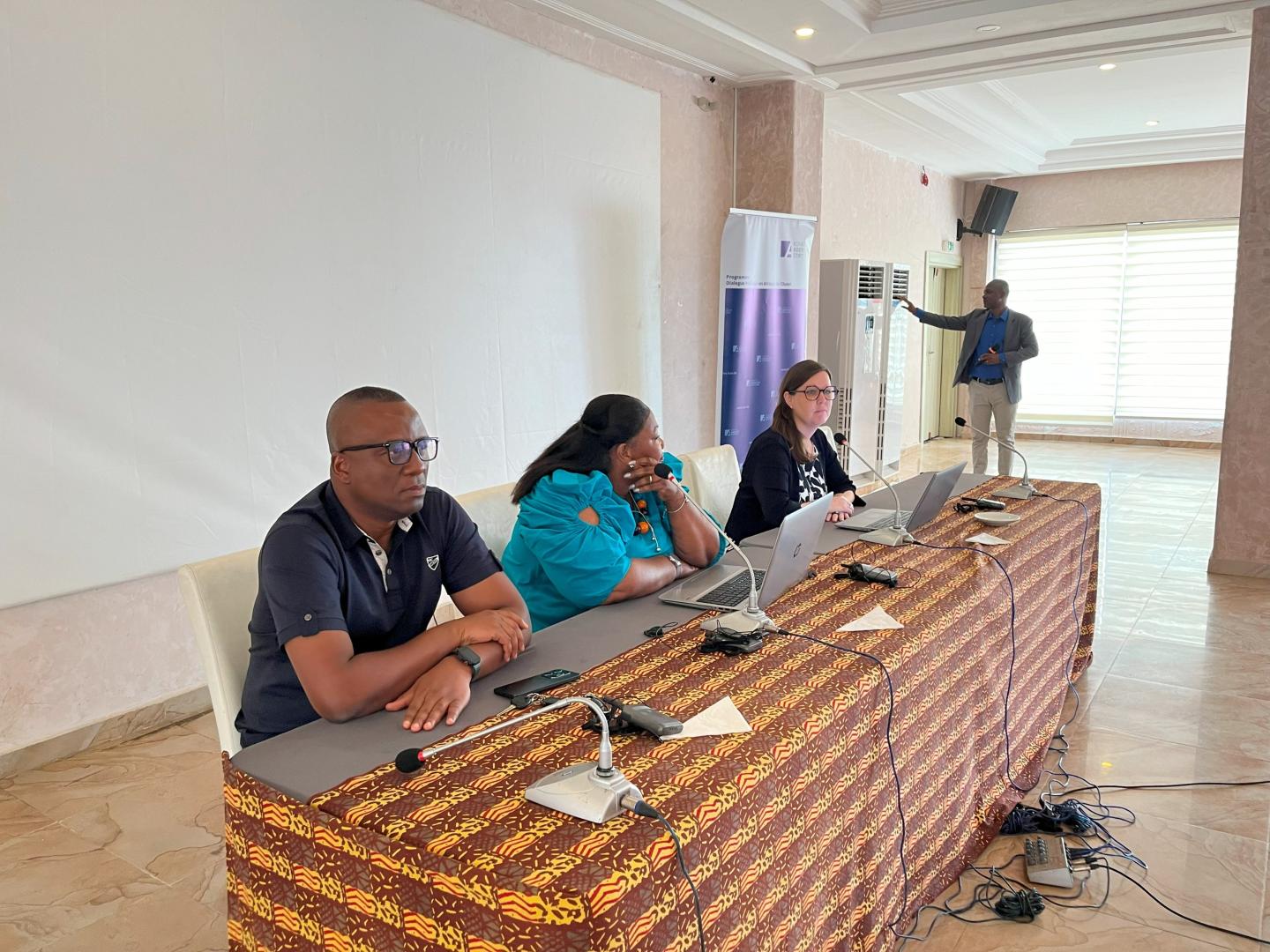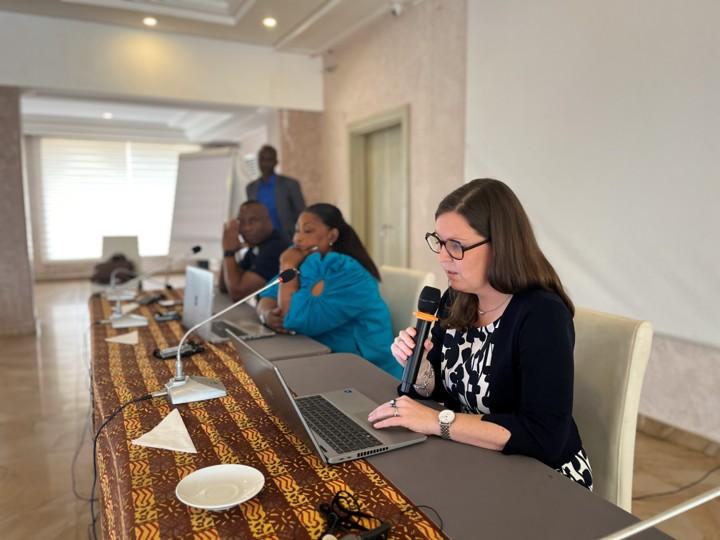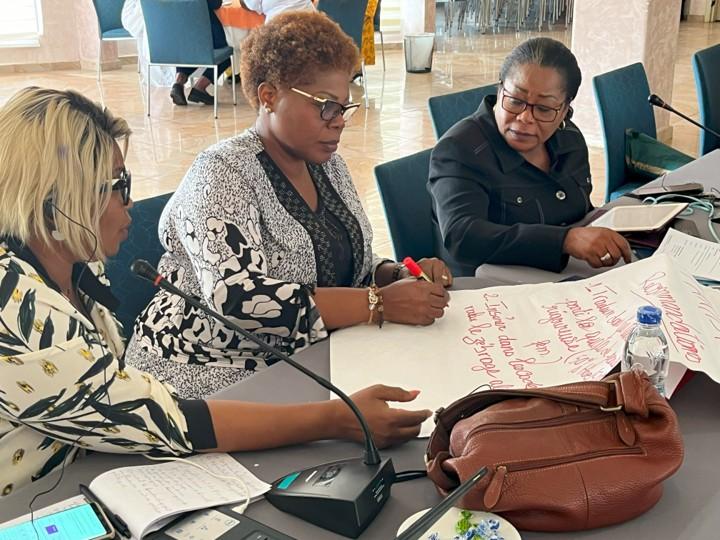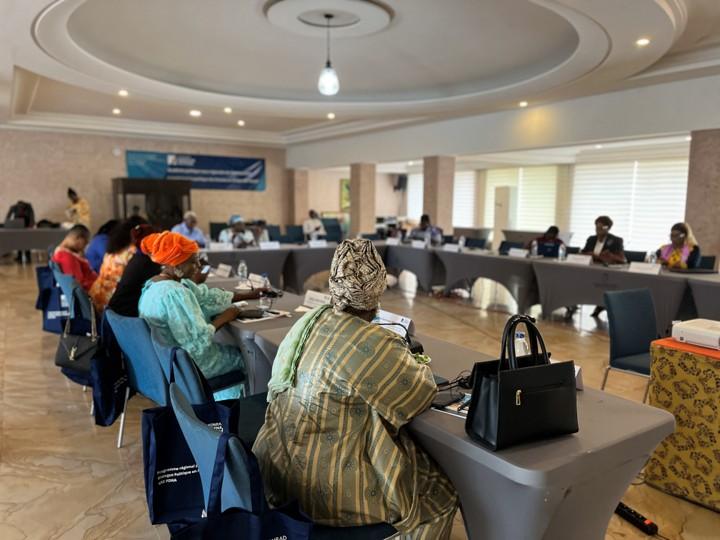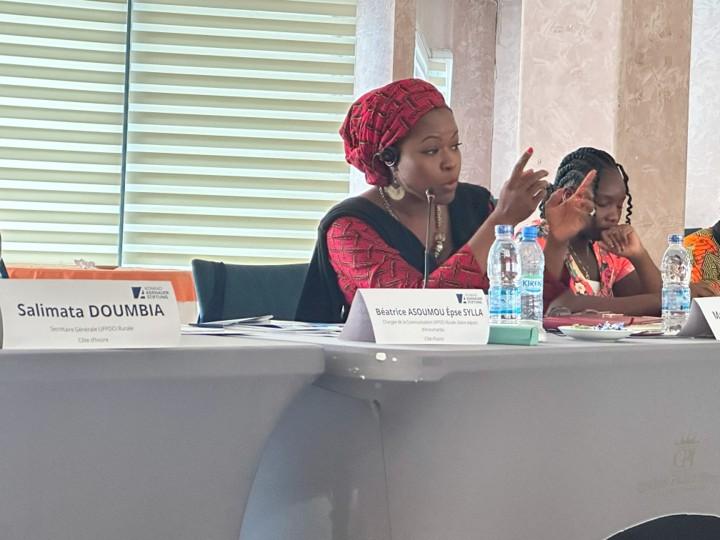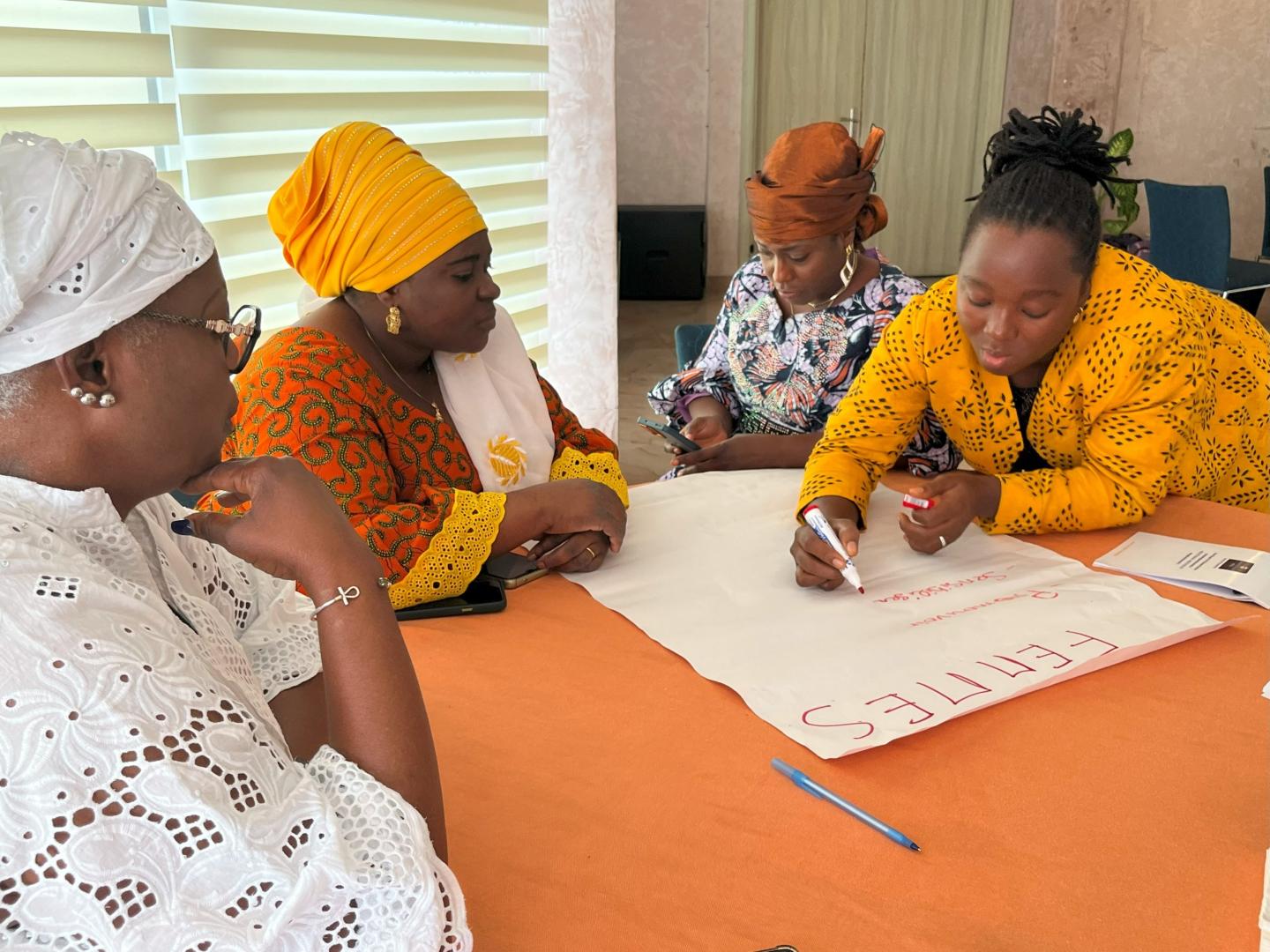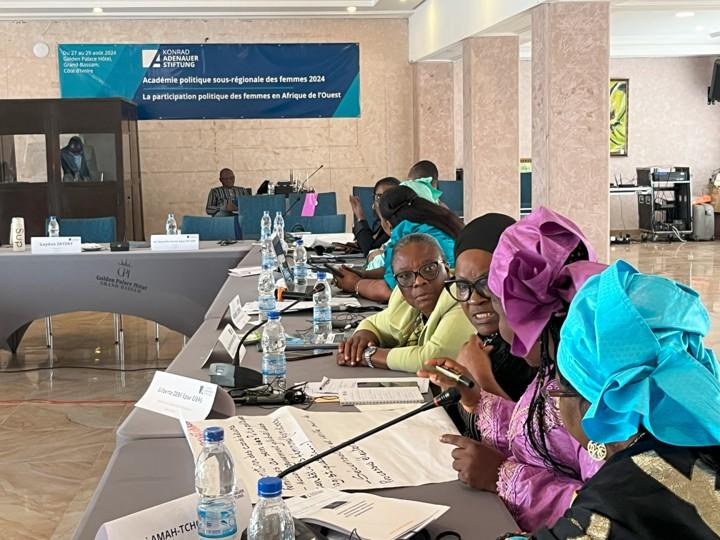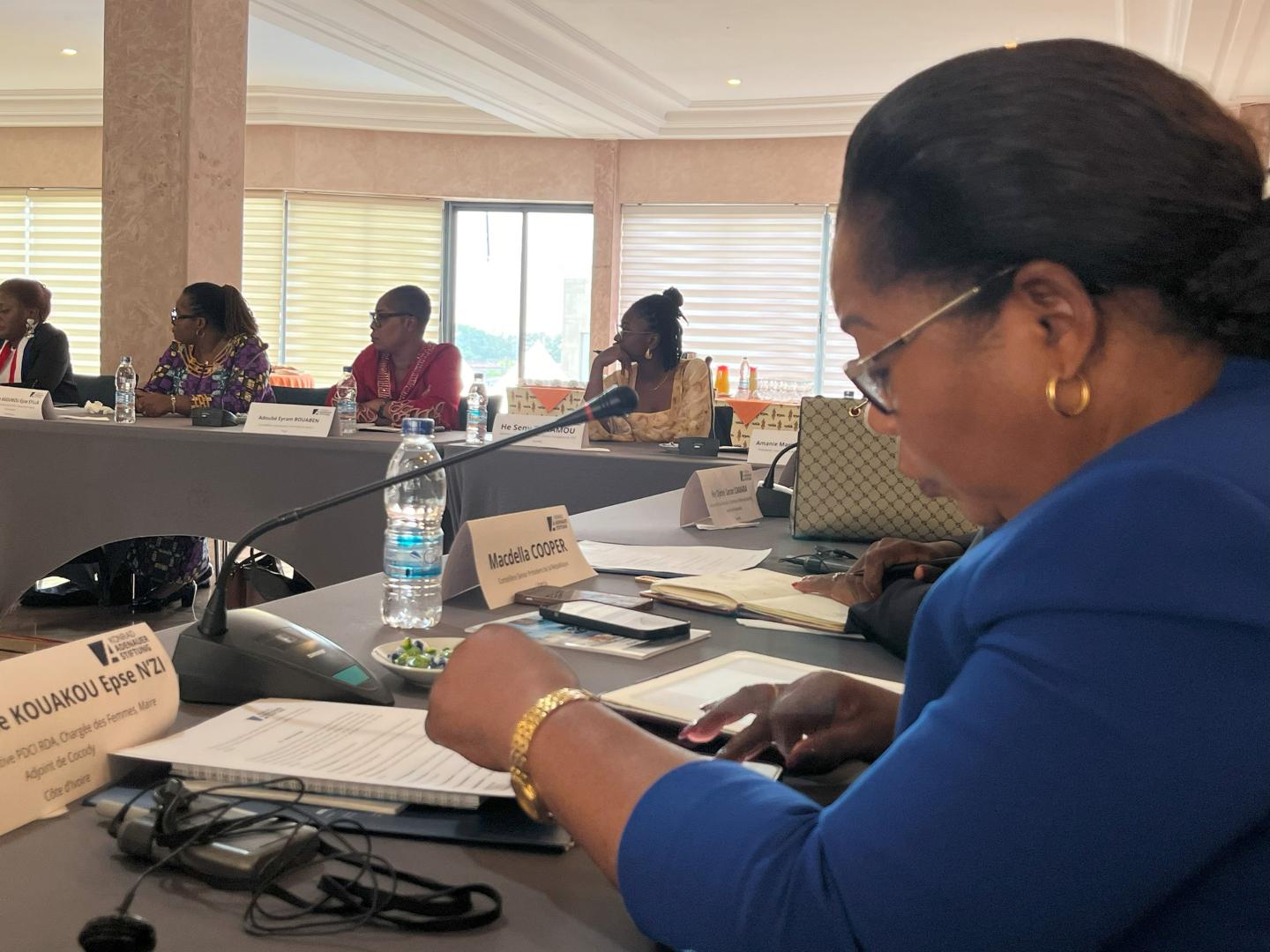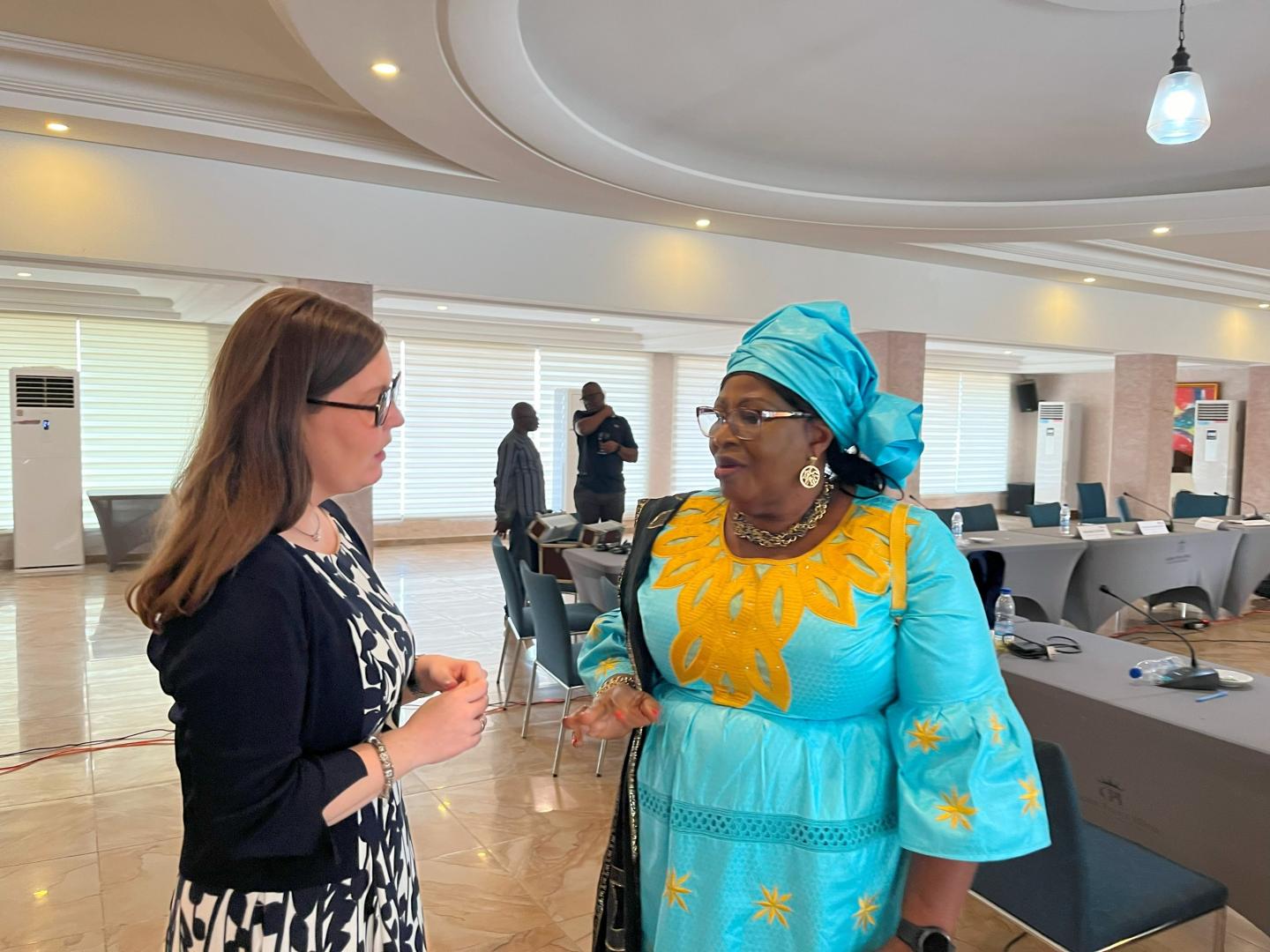Led by Gérard Guèdègbé, an expert in journalism, communication, and political marketing, deputies, senators, and political advisors gathered for three days in Grand-Bassam to strengthen their skills as political actors. The theme was: Women's Political Participation in West Africa.
Dr Stefanie Brinkel, the resident representative of the Konrad-Adenauer-Stiftung (KAS) and director of the Regional Program for Political Dialogue in West Africa (PDWA), opened the event. This was followed by a panel that examined the current situation regarding women's political participation, highlighting the continuing low visibility of women in political contexts.
Namizata Sangaré, president of the National Human Rights Council (CNDH) of Côte d'Ivoire, then delivered a speech on promoting women's political participation. She handed the floor to Prof. Séraphine Nene Bi, who spoke on "Women and the Understanding of Power in West Africa." The director of the African Center for the History of Law, Institutions, and Political Ideas (CAHDIIP) then passed the microphone to Ivorian Senator Béatrice Diby, who discussed women's contributions to the nation's development.
On the second day, an exchange of experiences on women's political leadership took place, featuring Macdella Cooper, Senior Political Advisor to the Presidency of Liberia, Seny Tonamou, a member of the National Transitional Council of Guinea, and Adoudé Eyram Bouaben, a municipal councilor from Lomé (Togo).
The remainder of the day included three lectures by Gérard Guèdègbé: on promoting women's political leadership in West Africa, developing a positive self-image, and overcoming stereotypes and misinformation.
On the third day, Gérard Guèdègbé informed elected representatives and their colleagues about strategies for asserting their leadership in a male-dominated environment. He explained how to use social media to promote their leadership, conduct election campaigns, and mobilize financial resources for these campaigns.
These panels and lectures were complemented by Q&A sessions, group work, and mini-workshops.
The event fostered a symbiosis and expanded the network of these women, revealing similarities and differences between English- and French-speaking countries in West Africa. Additionally, it highlighted the realities of the women’s movement within the political power structure.
The participants left with a firm commitment to put their newfound knowledge into practice.



